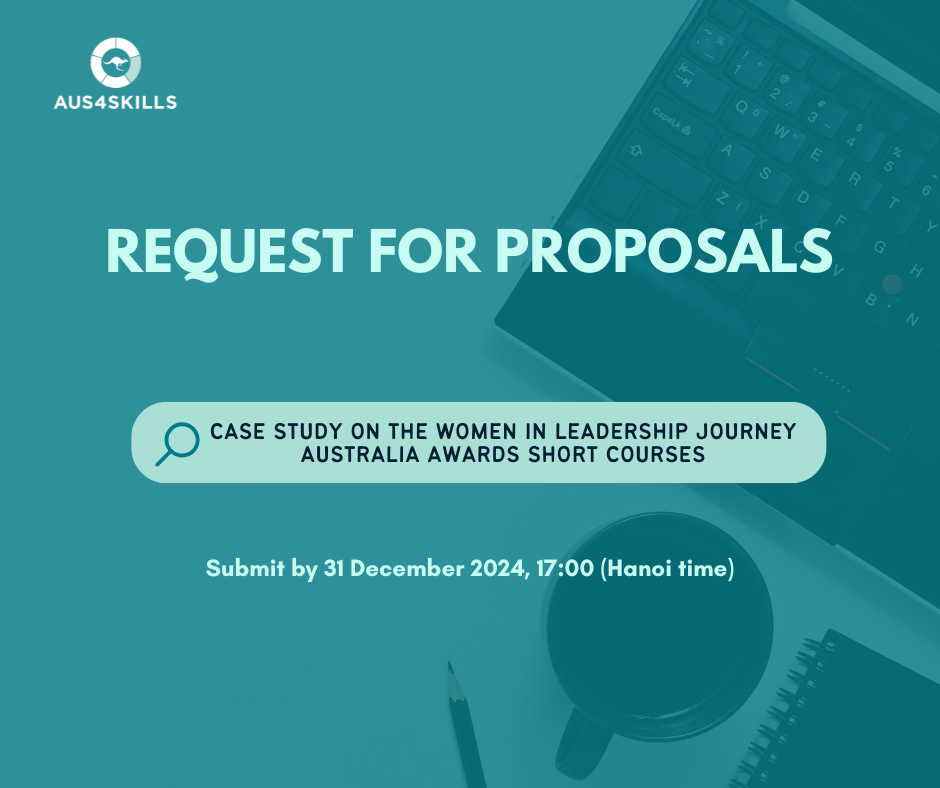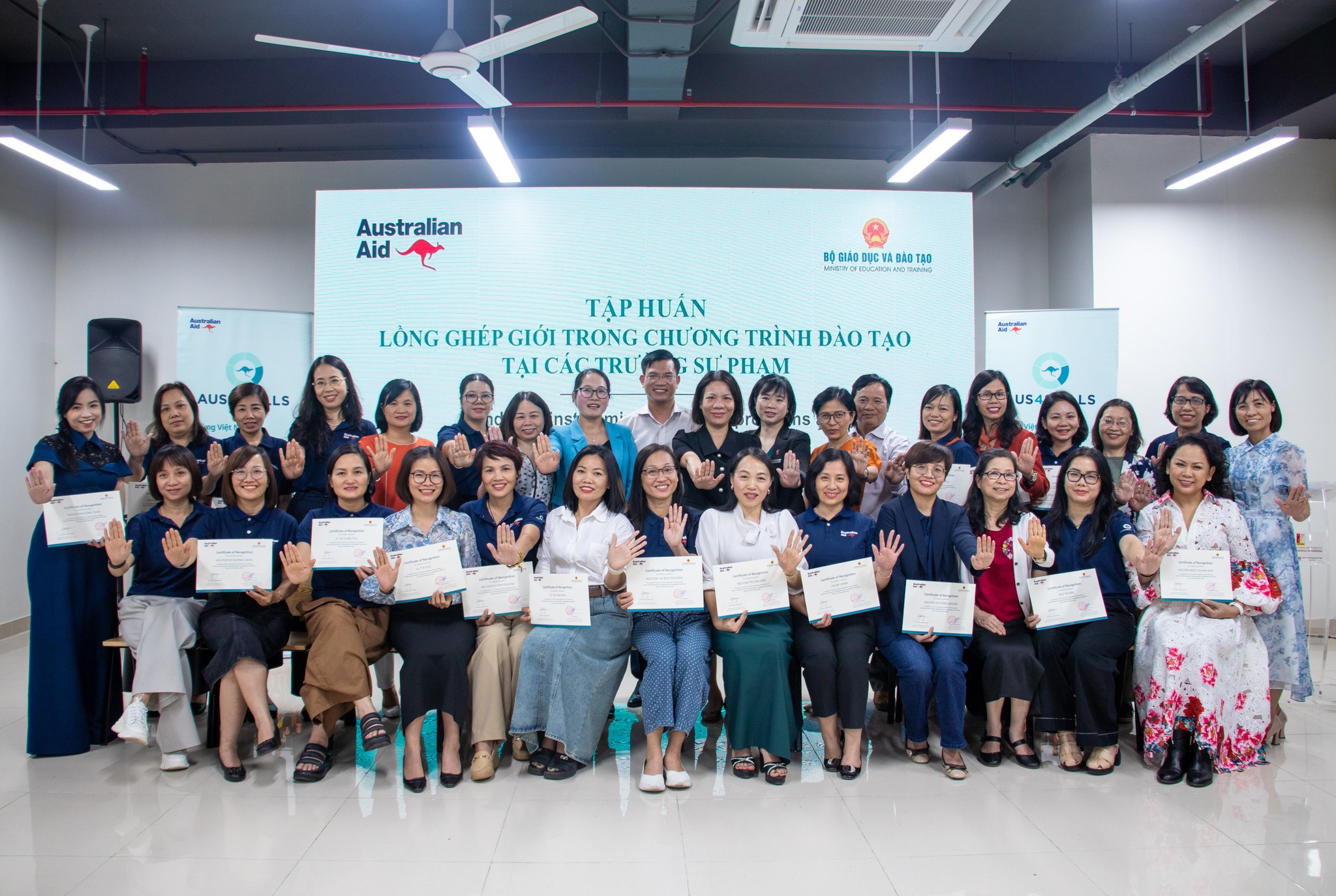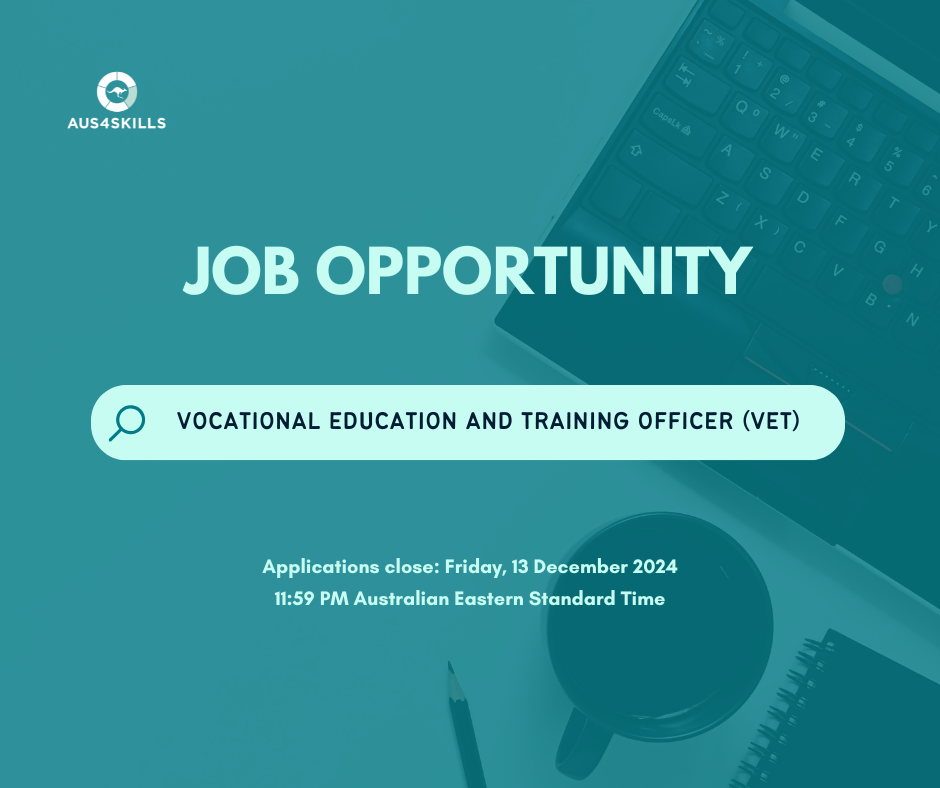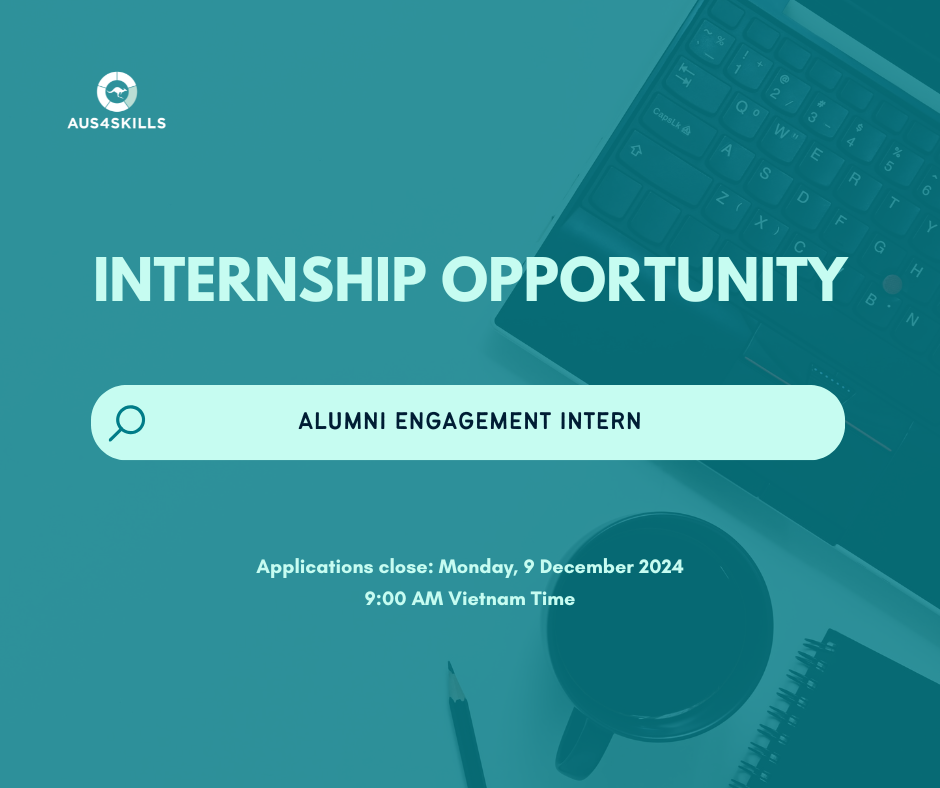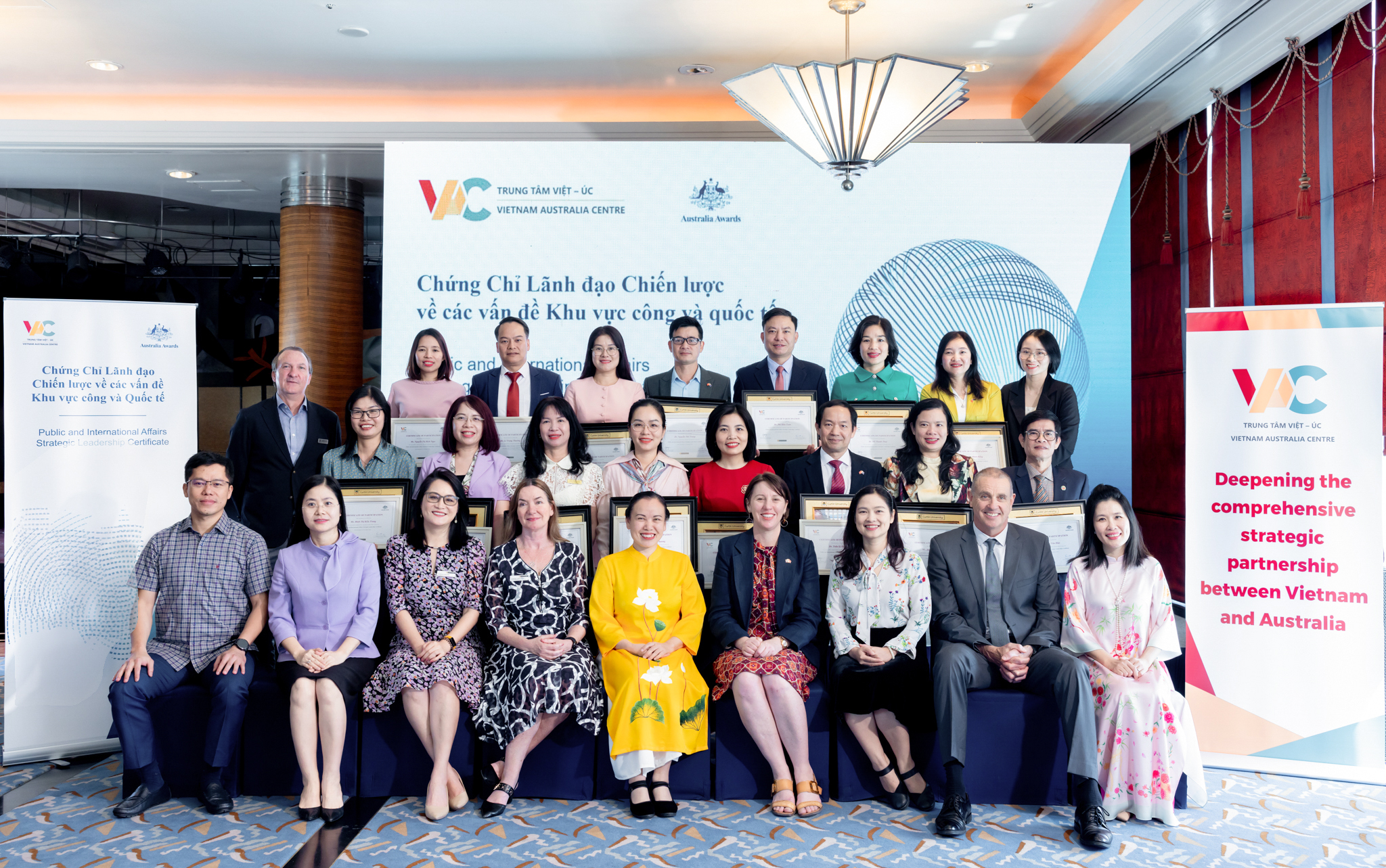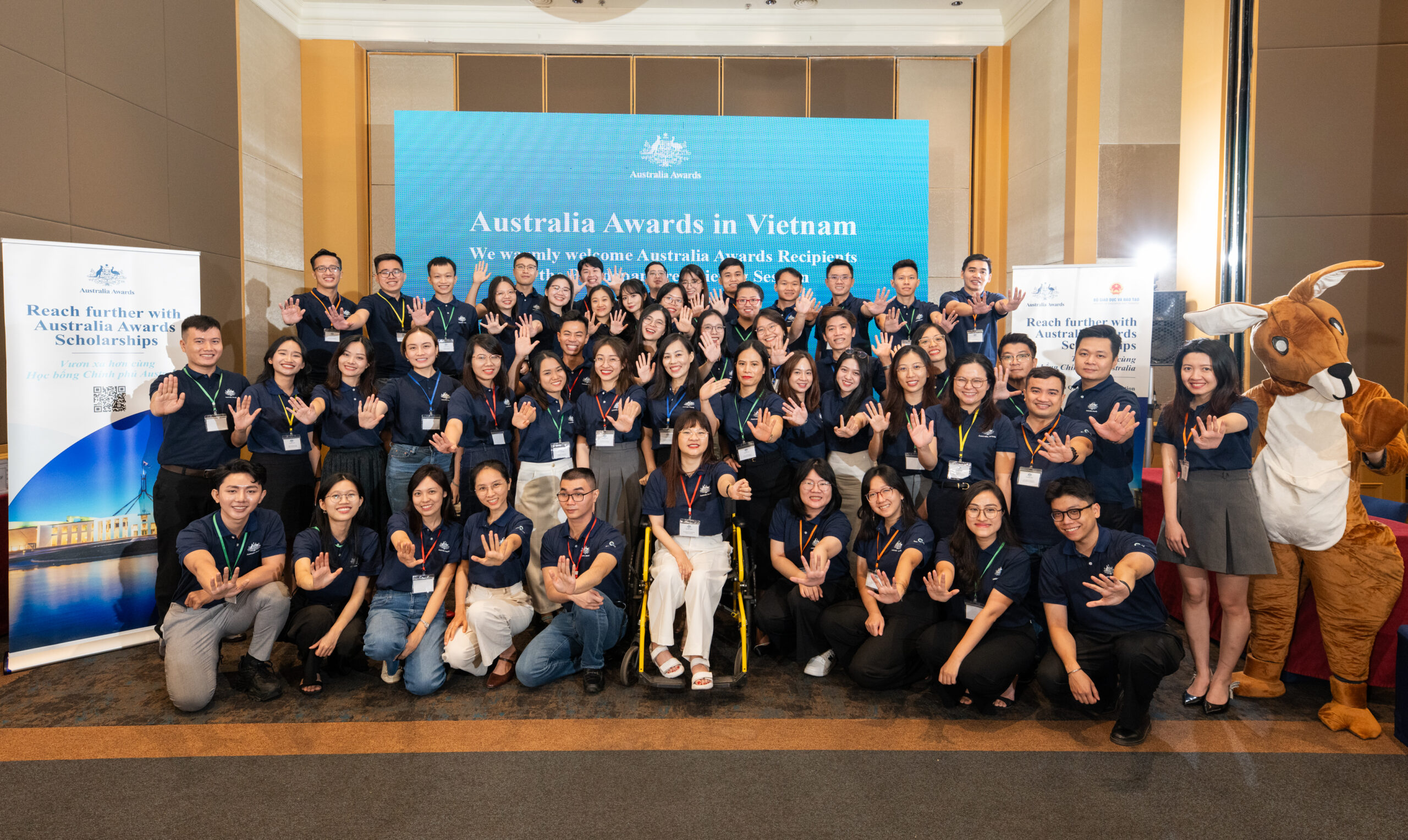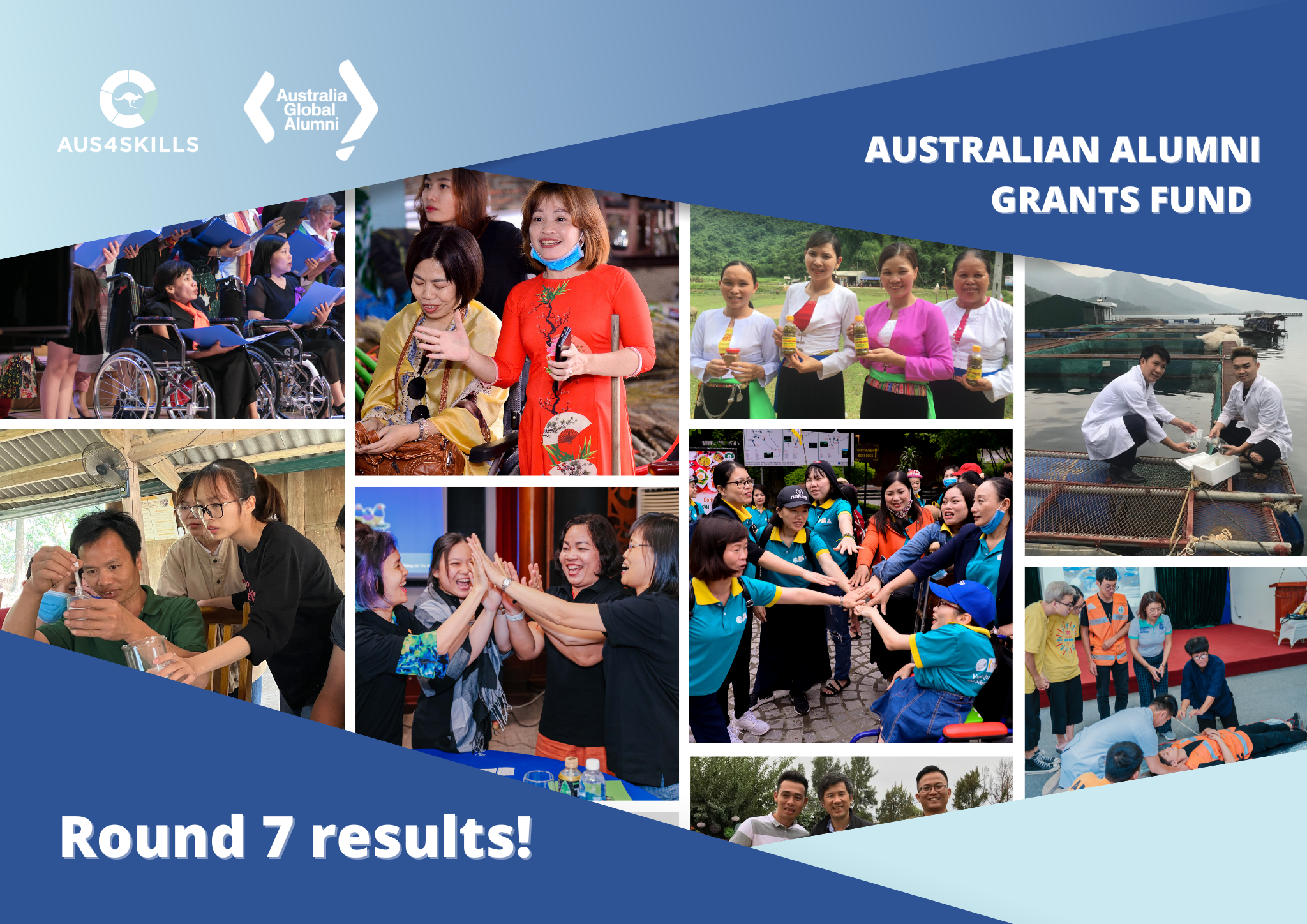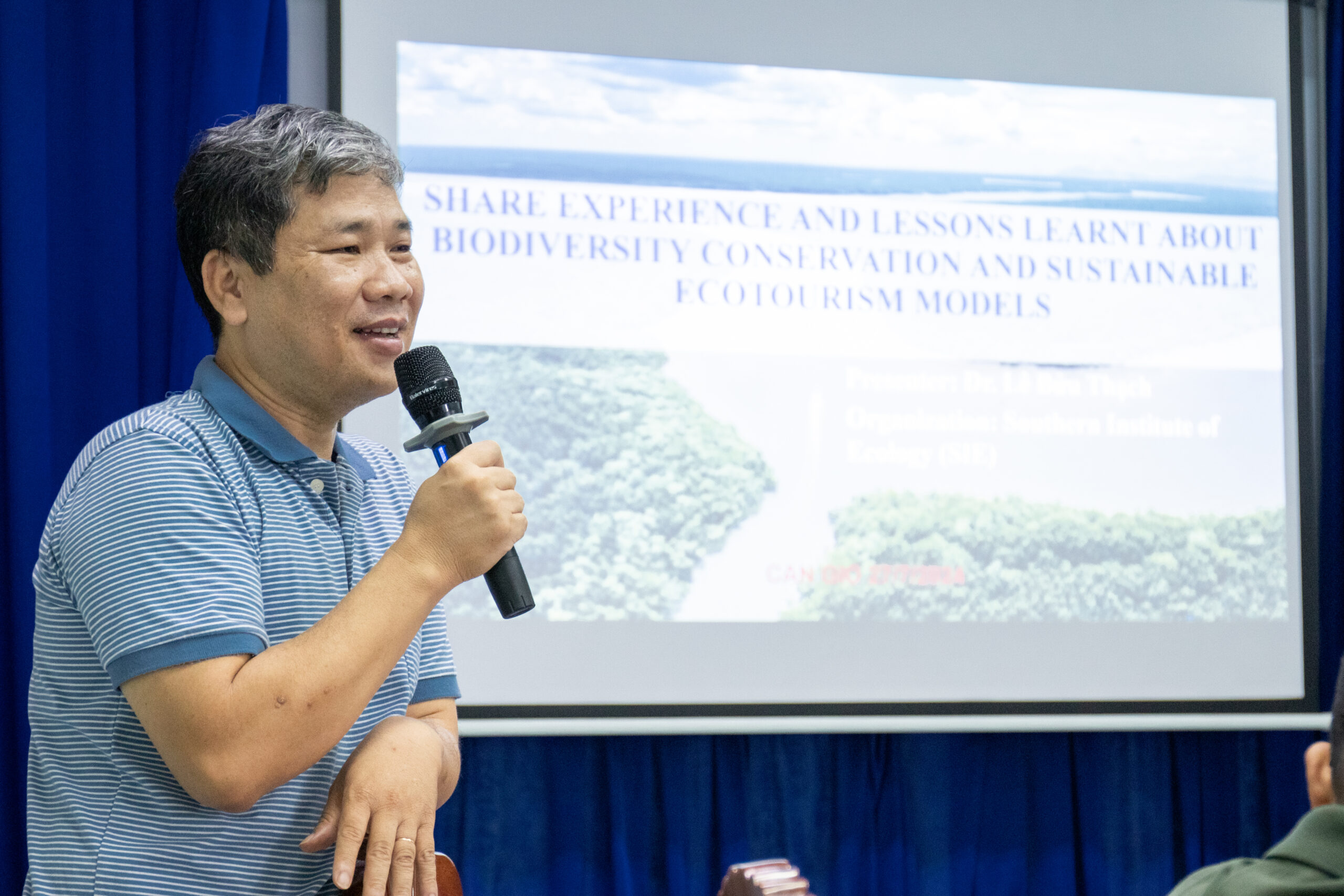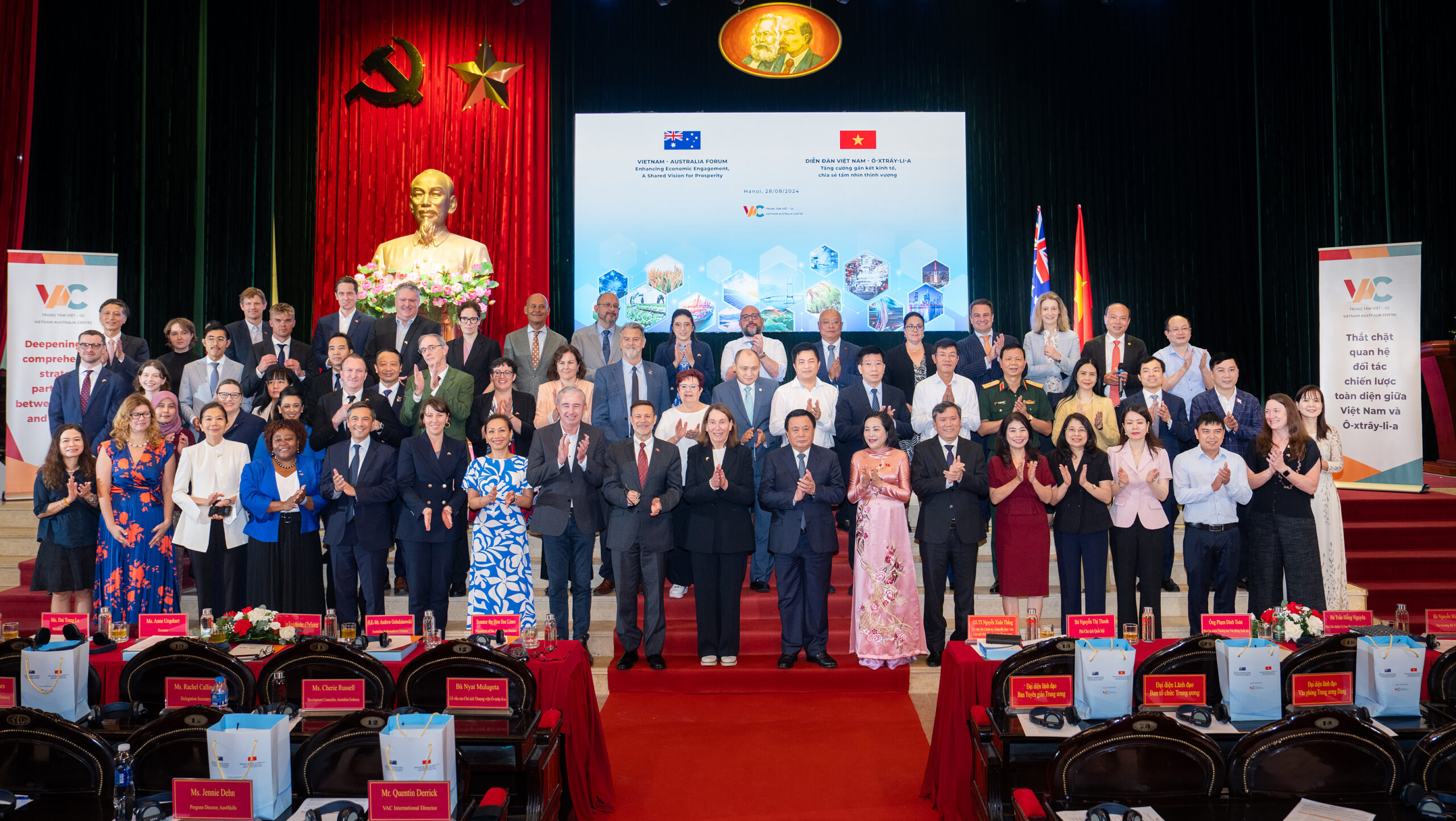
Dr Pham Thanh Hieu receives a Certificate of Participation from the Australia Awards Short Course on Strengthening Teacher’s Academic Support for Disadvantaged Students from Dr Howard Nicholas
Education and Times Newspaper – Born in 1983, the young teacher, Dr Pham Thanh Hieu who is Mathematics and Physics lecturer at the Basic Science Faculty, Thai Nguyen University of Agriculture and Forestry (TUAF), has finished a three-month course on Strengthening Teacher’s Academic Support for Disadvantaged Students provided by Aus4Skills.
When being asked what is her impression about the course, the young teacher replied delightedly: “Sometimes I thought I was a Rector!”
Taking roles and thinking
Dr Hieu participated in the course which was facilitated by an Australian expert – Dr Howard Nicholas, La Trobe University. Dr Howard not only shared his knowledge and skills but also inspired lecturers to think about how to best support disadvantaged students, including students from ethnic minority groups, female groups, and economically disadvantaged groups.
During the course, Dr Howard always gave questions on how to support students academically and economically, how to decide on supporting policies and to develop the university’s infrastructure. The target of the course was disadvantaged students but it will benefit a majority of TUAF students.
At first, Dr Hieu thought that she would be introduced to complicated methods, such as guidelines from Australian experts. However, the course brought a totally different experience. Dr Howard introduced activities and situations. For example, while discussing disadvantaged students, he posed a question: “In your opinion, what are the merits and demerits of disadvantaged students in your class?” After receiving the answers, he classified students by the content of the responses and outlined detailed solutions and methods to support each group.
The Australian expert requested participants to propose solutions from the viewpoint not only of lecturers but also departments, university leaders, etc. “Sometimes I thought I was a Rector because I had to consider many things that I have never considered before” – said Dr Hieu with humour.
In the following sessions, Dr Howard requested groups to present solutions and give feedback on each solution, and lessons learnt from implementing each solution. After each group presentation, many feedbacks were provided and discussed. The solutions that Dr Howard shared at the course was not new, participants may know them all but forgot to apply them. What makes Dr Hieu and other participants impressed the most about the course is that all knowledge and experiences were linked and re-arranged by the Australian expert. They cannot wait to apply them at their university. “The Australian instructor provided me this way of thinking, I can transfer this to my university students,” Dr Hieu said to herself.

Tráng A Dơ, a male student and his female classmates from an advanced program of TUAF participated in a group activity
Respecting personal identity and encouraging students to move forward
Dr Pham Thanh Hieu works at an Advanced Program for Environmental Science and Management, TUAF. In the program, there was a male Mong ethnic minority student, Trang A Do. He was very shy and did not participate actively in group activities despite encouragement from the lecturer.
To secretly support Trang A Do in group activity, Dr Hieu assigned A Do to a group of 4 female students. At the group presentation session, Dr Hieu encouraged A Do by saying: “You are the only man in the group, you should take charge and represent your team!”. With her continuous encouragement, A Do was able to present in front of the class. After the first timorous moments, with support from his teammates, Trang A Do became more confident and openly presented the group’s work.
Dr Hieu has also learnt another pedagogical method from the Australian expert and applied it to group activities in her classes. She usually starts the group discussion with simple questions, then encourages students to think and share their opinions openly. At first, each student will share a personal opinion about an issue, then share with a classmate sitting next to them, then discuss in a group of 3 to 5 persons. After that, all opinions are re-arranged in appropriate order.
With this method, the answers will represent ideas of the team and help students to share their ideas more openly and have enough time to prepare and improve teamwork skills.
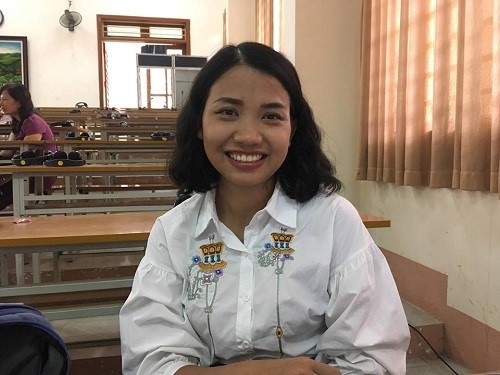
Dr. Phạm Thanh Hiếu
The plan to share obtained knowledge
“The course has changed me drastically. Previously, I wanted to support students, but sometimes I didn’t know how to best support them due to my limited ability. Now, in addition to the methods learnt, every time I have difficulties, I recall how Howard had solved problems raised during the course and I follow this method. After the course, fellow participants established a network to share experiences and support each other. We, as lecturers, also utilize collective wisdom to deal with problems,” said Dr Hieu.
Currently, Dr Hieu has implemented a personal project to improve students’ soft skills at the Probability & Mathematical Statistics classes. Her purpose is to strengthen presentation skills, teamwork skills, and explanation skills by using Microsoft Power Point and A0 paper. Dr Hieu plans to hold a seminar at faculty level in late 2018.
An interesting point about this project is that lecturers will listen to and promote ways to support students through their knowledge and skills, and by new presentation tools, which is different to the one-way teaching method.
“I think we should use different solutions to encourage and support students from different groups. In this course, Howard always emphasized how to support students to move forward and at the same time, encourage and respect their personal identity.” – said Dr Pham Thanh Hieu
Source: Translation of an article on Education and Times Newspaper






